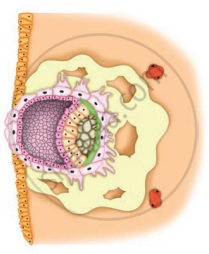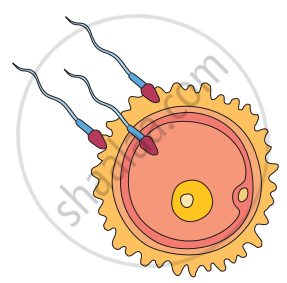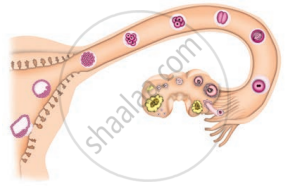Advertisements
Advertisements
Question
Multiple choice question.
Insect pollinated flowers usually posses ______
Options
Sticky pollens with rough surface
Large quantities of pollens
Dry pollens with smooth surface
Light coloured pollens
Solution
Insect pollinated flowers usually posses Sticky pollens with rough surface.
APPEARS IN
RELATED QUESTIONS
State the importance of DNA copying.
Which of the following organisms reproduce by sexual method and which by asexual method?
Amoeba, Cats, Humans, Hydra, Birds
Match the organisms given in column I with the methods of reproduction/propagation given in column II :
| Column I | Column II | |
| (i) Plasmodium | (a) Spore formation | |
| (ii) Spirogyra | (b) Leaves | |
| (iii) Jasmine | (c) Regeneration | |
| (iv) Apple tree | (d) Budding | |
| (v) Bryophyllum | (e) Binary fission | |
| (vi) Potatoes | (f) Layering | |
| (vii) Rhizopus | (g) Fragmentation | |
| (viii) Hydra | (h) Tubers | |
| (ix) Planaria | (i) Cuttings | |
| (x) Leishmania | (j) Multiple fission | |
| (xi) Sugar cane | (k) Grafting | |
| (xii) Rose |
The method of asexual reproduction in plants in which callus is produced is :
What type of fertilisation takes place in birds?
Why is reproduction necessary for living organisms?
Name the part of the cell where DNA is located?
By which process do green plants synthesize their food?
Name the factors which take part in this process.
Sporoderm is made up of ______.
The number of meiotic and mitotic divisions necessary for development of female gametophyte in angiosperms is ______.
The single shield-shaped cotyledon in monocot seed is known as ______.
What is the function of inner cell mass?
The plant which propagates with the help of its leaves is ______.
Name two organisms that reproduce through budding.
Assertion and Reason types of Question.
Assertion: In potatoes, shoot arises from eyes.
Reason: Eyes represent the buds.
How is reproduction in Hydra different from that in Amoeba?
Observe the following figures.
 |
 |
 |
|
| (a) | (b) | (c) | (d) |
- Identify the stages (a) to (d) in figure during development of human baby.
- Arrange the stages in correct sequence of development.
- Explain the development that takes place in any one stage.

